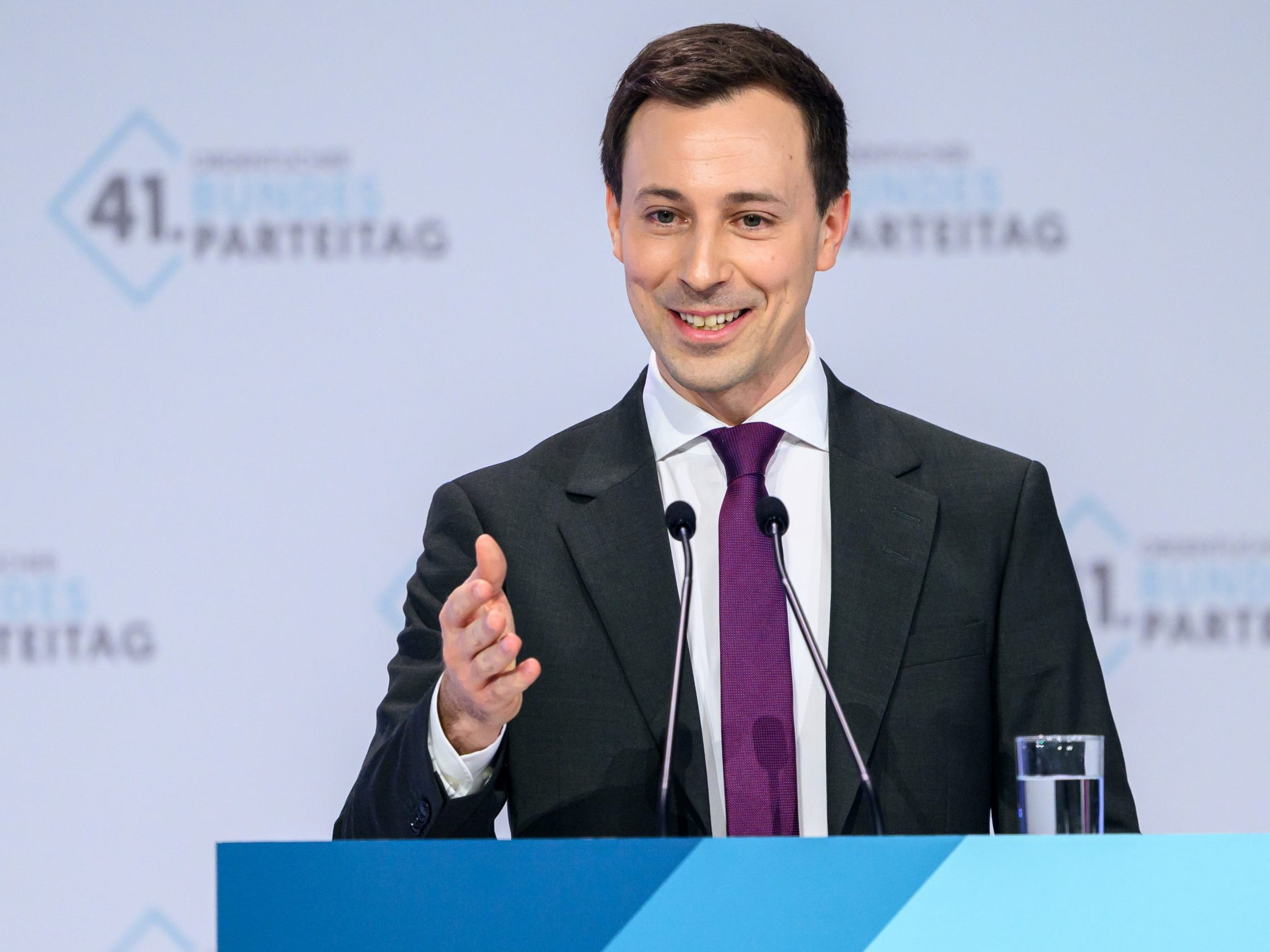"Not the Voters Need to Change, but the ÖVP"

According to its Secretary General Nico Marchetti, the ÖVP needs change. "We want to rearm ourselves as a people's party, especially on fundamental political issues," he said in an APA interview. After all, they want to compete for first place again in the future. "It's not the voters who need to change, but the ÖVP," he quoted former party leader Alois Mock. He considers the discussion about raising the retirement age to be "theoretical."
Strategic Process Announced
In a substantive process, one must address essential questions and take clear positions. "What does the concept of performance mean in an era of digitalization and artificial intelligence?" Marchetti cited as an example. Questions would also be raised by demographic change and international cooperation in a changing world order.
The ÖVP must succeed in the cities, having lost the mayor in Salzburg, Dornbirn, and Graz. "That all hurts," said Marchetti. In September, a city summit with representatives from all federal states will take place, where they will consider how to become more innovative in content. Conservative politics means that "one says certain values in society are simply relevant" - this can also work in cities. For example, on the topic of integration, where they "do not want to let certain things slide." Sometimes, one does not recognize neighborhoods anymore. In choosing the means of transport, the ÖVP must "move a bit away from 'mobility is an ideological statement' towards 'what is simply practical and where do we as a people's party also need to create corresponding offers.'"
ÖVP Secretary General Sees Trend Reversal in Polls
In the poll results, the Secretary General already sees a trend reversal. At the beginning of the year, during the government negotiations, the ÖVP was still below 20 percent, but according to the APA election trend, which takes into account results from the past five weeks, it is now around 22 percent. The FPÖ fell from just under 38 to 33 percent. Federal Chancellor Christian Stocker, who "of course" should also be the ÖVP's top candidate in the next election, speaks "with his professional, binding, and calm manner" not only to ÖVP core voters. The three-party coalition also wants to "really initiate reforms," Marchetti referred to the reform partnership with the federal states.
After the failed attempt to form a coalition, Marchetti recently criticized the FPÖ sharply. "What is the performance record of the FPÖ as an opposition party?" said the Secretary General in response to the FPÖ giving the government a "five". The Freedom Party would copy inquiries and send them around in circles. Recently, the FPÖ had submitted 827 parliamentary inquiries on the topic of Corona. As part of the reform partnership, the Styrian governor Mario Kunasek (FPÖ) will also sit at the table as chairman of the governors' conference. For some topics, a two-thirds majority will be needed. If the FPÖ does not contribute constructively, "it is also a clear signal that they are simply not willing to take responsibility," said Marchetti.
The FPÖ's demand for a committee of inquiry into the death of the former head of the justice department Christian Pilnacek and various Corona measures was recently disputed by the coalition parties; this is now a case for the Constitutional Court. It is about whether the subject of the investigation is constitutional, and not whether it pleases the ÖVP, said Marchetti. When asked whether the ÖVP could set up its own committee of inquiry against the FPÖ, he said that if there was a reason and substance, then "we will of course consider this means." However, the control instrument is about federal administration and not about parties.
"Theoretical" Discussion on Raising the Retirement Age
There was recently disagreement within the People's Party on the pension issue. While club chairman August Wöginger ruled out an increase in the statutory retirement age, National Council member Gudrun Kugler advocated not waiting "forever" for it. According to Marchetti, the ÖVP sees itself as "the grandchildren's party" and is in favor of reforms in the pension sector - one can "also discuss proposals constructively". However, the federal government has agreed to increase the actual retirement age, and with the reform now decided, they are on a good path. Overall, it is only a "theoretical discussion". There is ultimately no parliamentary majority for raising the statutory retirement age, "neither in the current constellation nor with the FPÖ."
Marchetti himself will take over the media agendas of his party from Economic Association Secretary General Kurt Egger in the summer. That this happened because Egger had not announced a reform of the ORF appointment processes to the ÖVP governors, as speculated by the "Presse", Marchetti considers "a summer hole analysis". It is customary for the Secretary General to also be the media spokesperson. The change at ORF - governors lose their right to be heard in the appointment of ORF regional directors - is in any case substantively correct. The ORF, like all other public institutions, must also consider where it can become more efficient in a time of budget consolidation. Freezing the household levy for the next few years is good, as it establishes a certain savings requirement.
(APA/Red)
This article has been automatically translated, read the original article here.





